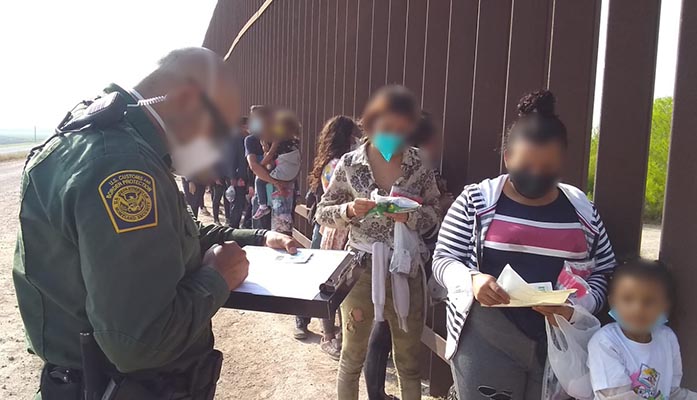
Democratic County Supervisors Complain Ducey Didn’t Talk To Them Before Deploying National Guard Troops Sheriffs Begged For
By Terri Jo Neff |
When Gov. Doug Ducey pledged $25 million last month to deploy the Arizona National Guard to the Mexico border he did so after the Biden Administration ignored pleas from state and local law enforcement officials to address the influx of immigrants and smugglers making it unhindered across the border.
The governor noted the National Guard troops would be on State Active Duty to assist with medical operations in detention centers, help with installation and maintenance of border cameras, monitor and collect data from the cameras, and analyze the situation at the border to identify trends in smuggling corridors.
The deployment was well received by two border sheriffs -Cochise County’s Mark Dannels and Yuma County’s Leon Wilmot- who spent the last three months trying to get federal authorities to come up with a plan for the escalating public safety threat and humanitarian crisis at and well beyond the international border.
However, Pima County Sheriff Chris Nanos has insisted his agency does not need National Guard support even though the county shares nearly 130 hundred miles of border with Mexico. The same “no thanks” approach was expressed by Sheriff David Hathaway of Santa Cruz County.
The difference in the positions of the sheriffs falls across political lines – Dannels and Wilmot are registered Republicans, while Hathaway and Nanos are Democrats.
The same political division is reflected in an April 21 letter signed by one county supervisor from each of the border counties in which they chastised Ducey for not asking for their input about the border situation. The signers -all of whom as Democrats- serve as their counties’ representatives on the Arizona Border Counties Coalition.
“We are disappointed that you failed to consult with the various Boards of Supervisors of each border county on this matter,” the Coalition letter states. “If asked, we would have requested assistance for transportation services, specifically buses and drivers, to provide those transportation services that we are now left to arrange on our own.”
The letter was signed by Sharon Bronson, Pima County; Ann English, Cochise County; Bruce Bracker, Santa Cruz County; and Tony Reyes, Yuma County.
Chief of Staff Mark Napier of the Cochise County Sheriff’s Office (CCSO) serves as his county’s point of contact with the Arizona National Guard. Last Thursday more than 30 troops arrived in Cochise County to perform a variety of non-law enforcement duties, including working with an extensive camera system utilized by the Southeastern Arizona Border Region Enforcement (SABRE) team to monitor cross-border traffic.
The troops are also providing support in CCSO’s jail and other clerical activities which allows sheriff’s personnel to deal with “other service demands and address the increase in challenges associated with the border crisis we currently face,” Napier explained.
On Friday, Napier told AZ Free News he and Sheriff Dannels had no advance notice that Supervisor English was signing the letter to Ducey, but they do not see the supervisor’s stance about deployment as being in conflict with CCSO’s position that the border crisis “presents a public safety, national security and human rights issue” which must be addressed in collaboration with federal, state, and local partners.
“The letter expresses some frustration over the lack of engagement between the Governor and Supervisors with respect to the deployment of AZNG personnel,” Napier said. “That is a matter between those Supervisors and the Governor.”
Napier added the Coalition’s letter also states border security is a responsibility of the federal government, “which in fact it is.” And the letter does not deny there is a public safety concern related to the current conditions along the border, he noted.
The Coalition’s letter makes no mention of the frequency or cost of transportation services any of the counties have had to provide or arrange for.

